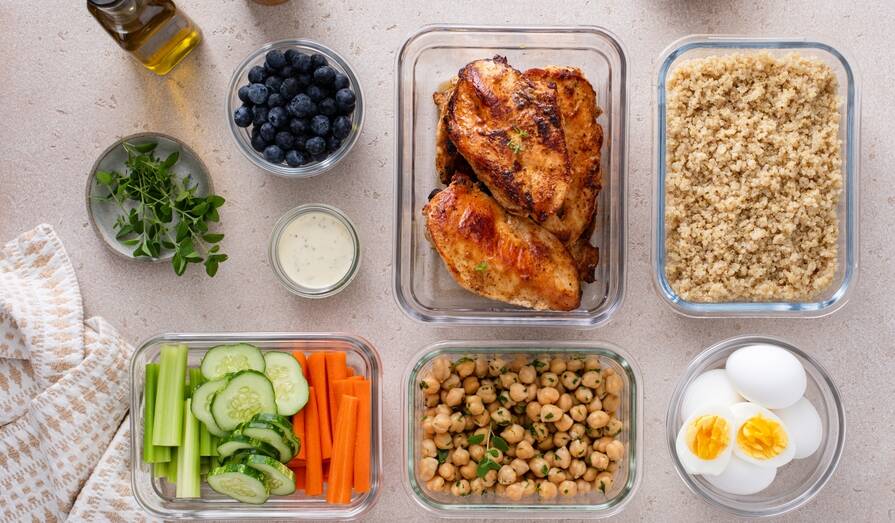In our fast-paced world, it can be challenging to maintain a healthy diet while juggling work, family, and other responsibilities. Enter meal prep – the ultimate solution for staying on track with nutritious eating, even during the busiest weeks. By dedicating a little time each week to planning and preparing meals in advance, you can save money, reduce stress, and make healthier choices.
Step 1: Set Your Goals
Before diving into meal prep, it’s important to define your goals. Are you looking to eat more balanced meals? Save money by cooking at home? Stick to a particular diet plan like keto or vegetarian? By identifying your specific objectives, you can create a meal plan that’s right for you. For example, if your goal is weight loss, you might focus on portion control and incorporate lots of vegetables and lean proteins. If convenience is key, aim to prepare versatile ingredients that can be used in multiple meals.
Step 2: Plan Your Meals
Start by choosing which meals you’ll be prepping for the week. Some people prefer to prepare breakfast, lunch, and dinner, while others find it sufficient to focus on one or two meals each day. Begin by drafting a weekly menu – consider making dishes that use similar ingredients to minimize waste and save time. For example, roasted vegetables can be used in grain bowls, wraps, or as side dishes. Use your plan to create a detailed grocery list that covers everything you’ll need, ensuring you stay organized and reduce impulse purchases.
Step 3: Keep It Simple
Meal prep doesn’t have to be complicated. Choose simple, easy-to-make recipes that don’t require a long list of ingredients or intricate techniques. Think one-pan dishes, sheet tray meals, or slow-cooker recipes. Foods like grilled chicken, quinoa, roasted vegetables, and leafy greens are excellent staples that can be paired in various ways throughout the week. Batch cooking basics like rice or pasta and using pre-chopped or frozen veggies can also save valuable time while keeping your meals nutritious.
Step 4: Prepare Your Ingredients
Once you have a plan, set aside time each week – typically on a weekend or a less busy day – to cook and assemble your meals. Start by prepping ingredients that take the longest to cook, such as roasting vegetables or boiling grains. While those cook, wash and chop fruits and vegetables, portion out proteins, and assemble salads or grain bowls. Store prepped items in clear, airtight containers so that everything is ready to grab when it’s mealtime. Proper storage helps maintain freshness and makes it easier to see what you have on hand.
Step 5: Stay Flexible
One of the key elements of successful meal prep is staying flexible. Life happens – unexpected plans may come up, and sometimes you may not feel like eating what you prepared. That’s okay! Opt for prepping core ingredients rather than fully assembled meals if you prefer more freedom. This allows you to mix and match components based on what you’re craving. You could turn roasted chicken into a salad, a wrap, or a stir-fry, depending on how you feel that day.
Step 6: Mix It Up
To avoid getting bored, make sure to add variety to your meal prep routine. Rotate different proteins, grains, and vegetables each week. Experiment with new herbs, spices, or sauces to bring fresh flavors to your dishes. Preparing a variety of meals will help you stay excited about what you’re eating, making it more likely that you’ll stick with your nutritious eating habits.
Benefits of Meal Prep
Meal prepping not only saves time and money but also helps you make better dietary choices. Having healthy, pre-portioned meals at your fingertips means you’re less likely to reach for takeout or unhealthy snacks. It also reduces food waste, as you’re buying exactly what you need for the week. Most importantly, meal prep puts you in control of what you’re eating, allowing you to make choices that align with your goals and tastes.
By dedicating a few hours each week to meal prep, you’ll discover how much easier it is to stay on track with nutritious eating. With a little planning, some basic ingredients, and a commitment to your health, meal prep can be your secret weapon for a balanced, stress-free lifestyle.





